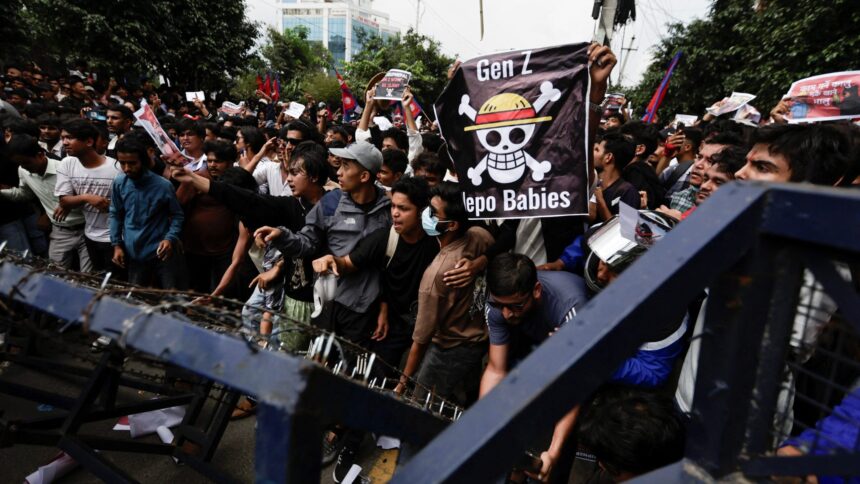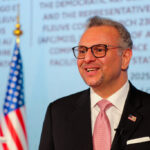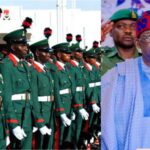A wave of mass youth uprisings, codenamed Gen Z protests, has been sweeping across Africa.
These Gen Z protests, characterized by speed and digital coordination, often challenge the political classes.
This new era of activism is defined by African Gen Z protests, where individuals born roughly between 1997 and 2012 are translating online frustration over economic stagnation and corruption into street power.
Africa has the world’s youngest population, with a median age of 19.3, and over 70% of the population is under the age of 30.
Below are some of the Gen Z protests recorded in Africa in recent times;
Kenya (2024):
In 2024, Kenyans organised their Gen Z protest. The protest was sparked by the Finance Bill pushed by the administration of President William Ruto. The demands quickly escalated beyond policy repeal to demands for systemic overhaul and the resignation of the president.
President Ruto was forced to sack his cabinet, scrap budgets in the offices of the first and second ladies, and withdraw the heated finance bill that stirred the protests.
Morocco (2025):
In North Africa, the “Gen Z 212” movement utilized the chat application Discord—a platform popular with gamers—for anonymous, high-level strategic coordination and debate. With 36% youth unemployment for those aged 15–24, grievances centered on the failure of public services, specifically subpar education and healthcare, which were directly contrasted with the nation’s immense spending on World Cup infrastructure. The Moroccan government responded by offering dialogue, but protesters demanded the Prime Minister’s resignation, insisting on institutional accountability over cosmetic talks.
Madagascar (2025):
More recently, Madagascar witnessed its version of the Gen Z protests. The protests began in late September 2025 over severe electricity and water shortages in the country. This immediate failure of basic human security instantly affected all citizens, including members of the military and civil society.
Madagascar’s President Andry Rajoelina has since fled the country amid heightened pressure from the uprising, leaving the court to declare his seat vacant and announcing Michael Randrianirina, commander of the elite army unit CAPSAT, as the country’s new leader.
Nigeria (2024):
Nigeria’s #EndBadGovernance protests, also mostly youth-led, came in August 2024. The demonstrations dubbed “10 days of rage” arose primarily due to worsening economic conditions, including high inflation and the removal of fuel subsidies.
Meanwhile, the recent Gen Z protests have brought important questions to light: are African leaders overlooking a crucial point in what appears to be an emerging continental trend?
Reacting to the emerging political wave, Majeed Dahiru, political analyst and columnist, attributed the increasing protests in Africa to an intellectual awakening among the youth, aided by the internet.
Dahiru asserted: “The new generation of Africans has become much more enlightened. They are connected more to the global community through information and communication technology.
“They’ve seen how things are done in the better parts of the world, and they want their own country, too, to be as good as what they see.
“So, people are becoming more and more agitated and are beginning to actually take their destiny into their own hands in attempting to cause positive change within politics across the continent.”
Also, speaking on the spate in Gen Z protests, Bintu Sakor, a doctoral researcher at the Harvard University Center for African Studies, described the development as an “intellectual awakening” in Africa, and “that is why it is more frequent now than it used to be before”.
“People really don’t want to settle for less. The structural issues in Africa are so deep that the transition is almost lasif you have a foundation of a house and your house is rotten, no matter who you put in the house, it’s going to be rotten.
“So many of the political institutions in Africa were built based on colonial structures, and they were meant not to serve the African people, but to serve Europe and (African) elites, which is zero something percent
“Are they listening? Yes. Would this lead to change? No. Because then we need to change the whole structure factor, but African leaders don’t have the courage or the skills. They’re so disconnected from their own population. They don’t know how to do that.
“They see poverty, but it’s like, ‘This is not my poverty.’ This is the sad thing about Africa. You can see a leader going past a road; the road is destroyed, and he doesn’t think that’s his thing to fix. This is the disconnect, and we need to figure out a way to make people who serve us serve us, not external people,” Sakor stated.
However, Franklyn Isong, director of the Centre for Human Rights Accountability Network, said it would be difficult for the protest-triggered changes witnessed in other African nations to be duplicated in Nigeria.
Isong opined: “If it were possible, he argued, it would have taken effect during the 2020 #EndSARS governance protest.
“The #EndSARS movement was a large-scale social movement that saw mass protests against police brutality, demanding the disbandment of the Special Anti-Robbery Squad (SARS), a notorious police unit accused of widespread abuse, including harassment, torture, and extrajudicial killings.
“Yes, you could say the government has changed the nomenclature of the team, but it is still there.
“This incident happened before the 2023 poll. The youth did not learn, because if they had, the election that came thereafter would have been more purposeful.
“They said they were determined for a change, but they did not go out there en masse to vote. Even when they voted, their vote wasn’t defended.”





